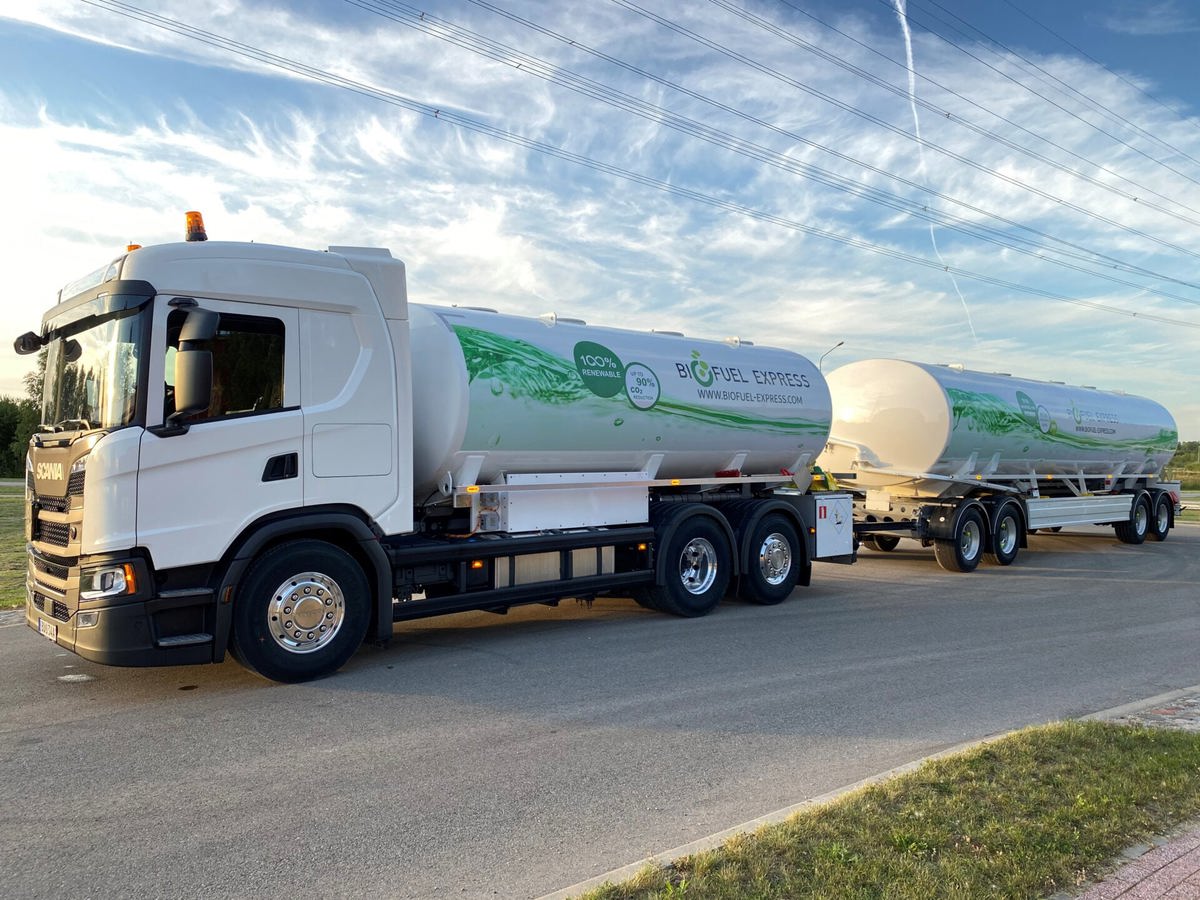ISCC proposes reforms to strengthen biofuel certification
The International Sustainability and Carbon Certification (ISCC) system has put forward 18 new measures to tighten biofuels certification under the EU’s Renewable Energy Directive (RED).
 IMAGE: Biofuel delivery trucks. Biofuel Express
IMAGE: Biofuel delivery trucks. Biofuel Express
These measures also aim to address growing concerns over fraud, transparency and traceability.
The proposals, discussed and ranked by industry stakeholders, reflect a broad consensus that the current certification framework needs sharper teeth to ensure credibility across Europe’s biofuels market.
According to the ISCC, stakeholders particularly stress the need to harmonise rules across voluntary schemes (VS) approved by the European Commission. Without common definitions and verification practices, inconsistencies between member states risk undermining trust and opening the door to manipulation.
First line of defence
One of the most pressing reforms involves tighter registration checks for new processing facilities.
Under the proposal, all first-time registrants must submit detailed technical data, which will then be vetted against satellite imagery, market intelligence databases and time-series analysis to spot discrepancies in location, layout or processing claims.
Stakeholders believe a checkpoint at this early stage can significantly reduce the number of fake or inactive operators entering the system.
The ISCC has recommended strengthening auditor qualifications, particularly for waste and residue-based biofuels. Voluntary schemes would require auditors to undergo targeted training and demonstrate specialised skills to handle these feedstocks, which are especially prone to fraud.
Plugging the loopholes
Waste and residue-based biofuels have also come under the spotlight, as these feedstocks are often seen as a loophole for fraudulent claims.
Currently, different countries use varying classifications, which can create confusion and regulatory blind spots. To close this gap, the ISCC has recommended standardising feedstock definitions across Europe under the principle of “one feedstock, one name”.
One proposal urges mandatory certification of all industrial-sized producers of high-risk feedstocks such as used cooking oil, brown grease and palm residue oils.
Stakeholders have also called on voluntary schemes to verify reported data on production capacities and output volumes using market intelligence tools.
“The intended outcome is stronger oversight of certified feedstock and biofuel volumes,” the ISCC says.
Another proposal targets operators who may deliberately stay under the radar, by reducing the volume threshold for on-site verification from 5 mt/month to 3 mt/month for feedstocks such as used cooking oil and brown grease.
“This measure may support in combating potentially fraudulent system users who operate below the existing volume thresholds with their quantity reports, thereby avoiding on-site auditing,” the ISCC explains.
Need for transparency
The ISCC has advocated for key data, including capacities, volumes, feedstock origin and plant information, to be published directly on certificates to improve transparency.
The EU’s Union Database for Biofuels (UDB) should be integrated with national systems, such as Germany’s Nabisy, to better track certified material flows.
Public consultation for registered economic operators has also received backing, to flag incorrect company information early in the process.
Policing the system
Stronger audit controls are also on the table. These include more rigorous transaction-level checks, minimum durations for audits, and regular rotation of both auditors and certifying bodies to prevent conflicts of interest or illegal activity.
“Intensification of mass balance verification is considered the most important measure to improve control over certified volumes and feedstock declarations,” the ISCC argues.
Non-EU operators are advised to maintain a European office to enable physical inspections.
Finally, the ISCC has warned against blanket restrictions such as regional caps or removing double-counting incentives without clear evidence of wrongdoing. Instead, it calls for smarter enforcement, stronger data oversight and better cross-border cooperation.
The ISCC will now begin “preparing for implementation” which includes “pilot technical assessments for high-risk conversion units.”
By Konica Bhatt
Please get in touch with comments or additional info to news@engine.online






